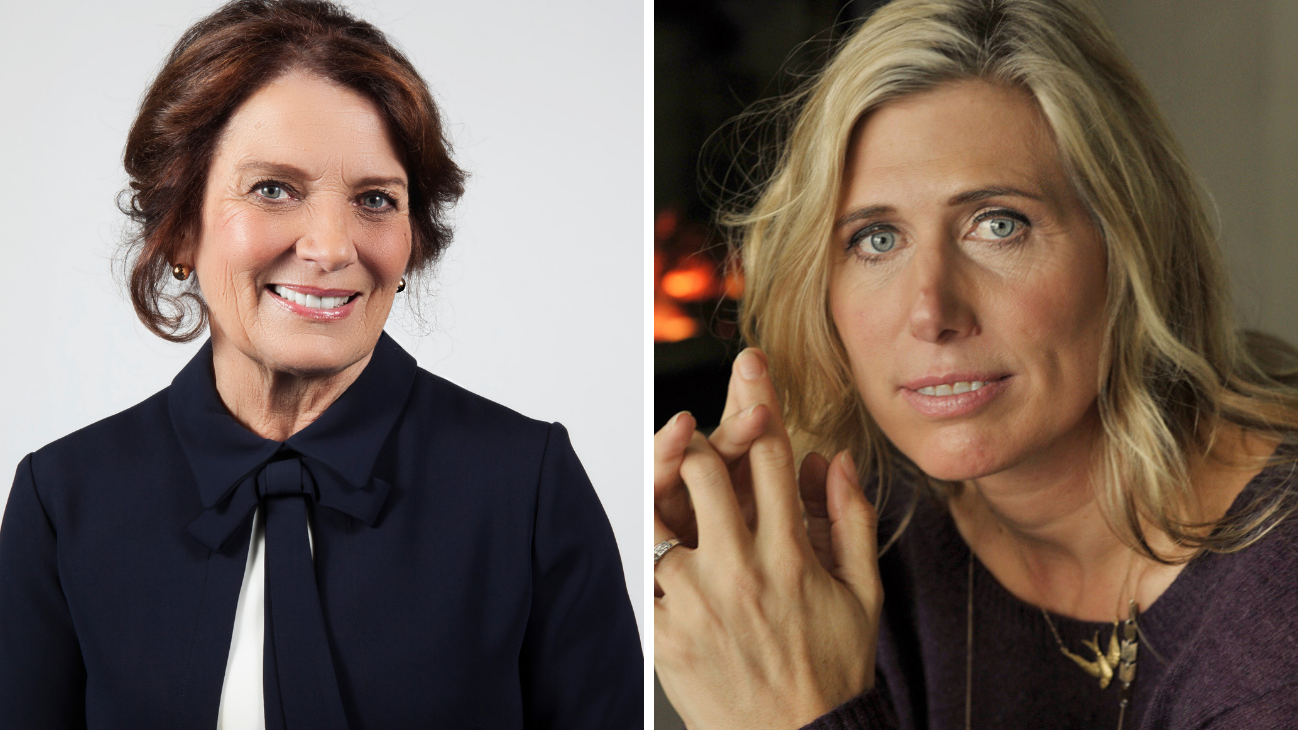Olympic hero and mental health advocate Silken Laumann is passionate about sharing her experiences and empowering others to rise to their potential and live their happiest and healthiest lives. Today, she takes this passion to a new level with the launch of Unsinkable, a story-sharing platform with a mission to connect and empower Canadians to achieve better mental, physical, and spiritual health.
In 1992, Silken won an Olympic bronze medal in rowing just 10 weeks after a devastating accident where she was told she would never compete in the Olympics again. From that moment on, she has openly shared her story of adversity, and people would often share their stories with her in return. After she wrote her memoir Unsinkable and spoke about her struggles with mental health, once again, people shared their stories as well. This had a profound effect on her.
Whether they were talking about their own struggles with mental illness or their experiences with physical adversity, because I shared so openly with them, their stories were going deeper and touching upon aspects of self-awareness and personal pain that many of us have struggled with.
Silken wanted to give others the opportunity to experience the power of story as well, because she knows firsthand that they can uplift, give courage, connect, and inspire us all. This became the foundation of Unsinkable.
One of the first people to share their story with Silken was the incredible Margaret Trudeau, a Canadian icon celebrated for both her role in the public eye and as a respected mental health advocate. From becoming a prime minister’s wife at a young age, to the loss of both her son and her former husband, to living with bipolar disorder, Margaret tirelessly shares her personal stories to remind others of the importance of nurturing the body, mind, and spirit.
Throughout the Q&A, Silken was in awe of Margaret’s vulnerability and commended her for being able to candidly share her experiences with mental health, bipolar disorder, and grief, all while living in the public eye.
Margaret: Bipolar sounds like two things, but if you don’t treat the illness, if you feed it instead, you experience a third element nobody ever told me about: the mania. If you feed it, as I would, if you deny that the lifestyle you are living is destructive and wrong, if you pretend that you are just above everything, then that thin, thin line between sanity and insanity gets thinner (they call it psychosis now) and your brain is pushed so far with all that is going wrong, your illness and mania, that it gives up the ability to reason. You don’t know why you brushed your hair, you don’t know why you just opened that can of tuna, nothing. It’s not violent or aggressive, there is just no function anymore, your brain has completely stopped serving you.
So if you are untreated and you think you are on top because you are so unique, because you are really special, and the people trying to help you are just ‘ordinary suits’, and you are determined to not be like those normal boring people, and you are convinced all the drugs are going to make you into a zombie – all these rationalizations that we feed ourselves to not have to face the truth: that we are sick and we are not our best selves. We are not the most loving person in the world. Depression is the thief that steals us from our family and mania is the nuclear bomb that creates so much collateral damage because of our lack of good judgement.
…
Silken: And what about people who don’t get over it?
Margaret: What happens to people who go back into real mental illness is that they get stuck there, it’s like the neuropathways get so open to depression that if you don’t nip it in the bud, if you don’t recognize what’s happening and close that neuropathway, it gets harder and harder to come out of it.
Silken: Why is the label of Bipolar Disorder so hard to accept for someone who is suffering?
Margaret: It’s hard because you go along, you take the pills, and you feel so much better that you start to think, I’m not bipolar; that’s not true. Look at the life I have, everything is in balance. And it is and you don’t connect that balance to the medication, so you stop taking the medication.
I am so open on stage that people who have issues come up and I hug them and ask them if they are getting help. Some of the young girls, I will whisper to them, If you battle hard one day you will find out it is the biggest gift you have been given, because being bipolar can be really wonderful when you have it controlled. When you have been to a place in life where nothing matters and come out of it, everything matters – every detail. And when you come out of it, you have the insight that there is a greater energy in this world than we know of
…
Silken: Forgiveness. I think self-forgiveness is hard won.
Margaret: When we have a mental illness, we don’t mean to hurt someone, we don’t mean to let them down. And it’s when we are out of it we just wince with pain and guilt, we hate ourselves. I remember the first session I had when I was starting to come out of my mania. My doctor said, “Why, you’d think you were an axe murderer with the guilt that you carry! What have you done wrong?” I let people down, it seemed like a big enough thing. The guilt, it eats you. The worst demon is how much we hate ourselves, how little value we put on ourselves. We dismiss people because we don’t know how deeply we are loved. The illness takes us, then we hate ourselves, and you wake up and you find out that your family has been waiting for the day when you come back because they love you so much. And then I found that I didn’t let people down, I needed help. [Bipolar disorder] took me away from all that’s good and real.
…
Silken: What would you share with families who have a loved one with bipolar disorder?
Margaret: Acceptance is number one. You are not going to change that person, it’s not something even we can change, we are wired this way. But what we can change is whether we control it or it controls us and how we can change that life of chaos by getting help to control it. If I get too high, I self-monitor; I am not going to go into mania, which is the opposite of what it was like before.
Show them respect, you have someone who is quite intelligent, who may laugh too loud, cry too hard, talk too fast… they are never going to be like everyone else. Help them recognize what’s happening, get help, encourage them to get treatment and don’t have too high of expectations. It’s baby steps. That’s how we rebuild our lives: a little step, another little step.
Visit Unsinkable to read more from Margaret and Silken, as well as other inspiring individuals.
Interested in learning more about Margaret Trudeau and/or Silken Laumann and what they can bring to your next event? Email us at [email protected].




